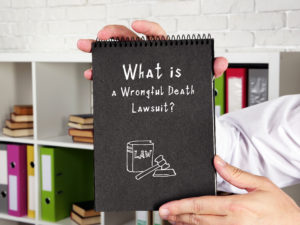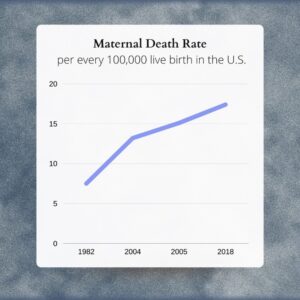 When a woman dies due to medical negligence during childbirth, a maternal death lawyer can help a family to hold the hospital and doctors liable and seek compensation for the family’s devastating loss. Unfortunately, each year about 65,000 women are injured and approximately 700 women die during childbirth or post-partum. In fact, the rate of women who die due to pregnancy or child-birth related causes is higher in the United States than any other high-income country. A maternal death lawyer can represent a family when medical errors resulted in maternal injury or a maternal wrongful death.
When a woman dies due to medical negligence during childbirth, a maternal death lawyer can help a family to hold the hospital and doctors liable and seek compensation for the family’s devastating loss. Unfortunately, each year about 65,000 women are injured and approximately 700 women die during childbirth or post-partum. In fact, the rate of women who die due to pregnancy or child-birth related causes is higher in the United States than any other high-income country. A maternal death lawyer can represent a family when medical errors resulted in maternal injury or a maternal wrongful death.
A maternal death lawyer can help your family file a lawsuit if you believe medical error contributed to maternal injury or death during childbirth. Common reasons for a maternal death lawsuit include:
Post-Partum Hemorrhage– This occurs when a woman experiences heavy bleeding after birth. It typically happens within a few days after birth but can occur up to 12 weeks after delivery. This is a serious condition that requires emergency attention. Physician mistakes such as delays in diagnosis and intervention, or technical errors are often the root cause of maternal death due to post-partum hemorrhage.
Preeclampsia/eclampsia – pre-eclampsia is a condition in which the woman develops high blood pressure and often has protein in her urine. Severe pre-eclampsia can cause seizures and put the mother at risk for seizures and stroke. Maternal death and injury in pre-eclaimpsia claims are frequently due to insufficient patient assessments, delayed diagnosis, treatment delays, and communication errors among medical staff.
Perineal wound complications – infections and wound breakdown can complicate healing of perineal wounds. Severe third-degree and fourth-degree lacerations are more likely to get infected and break down. Risk factors for perineal wound breakdown include episiotomies and operative deliveries.
Ectopic/Tubal Pregnancy – an ectopic pregnancy occurs when a fertilized egg implants outside of the main section of the uterus, most often in the fallopian tube. This is a medical emergency and requires immediate intervention. If a physician fails to timely diagnose and treat an ectopic pregnancy, a maternal death lawsuit should be considered.
According to the Centers for Disease Control and Prevention, the maternal death rate has been climbing. This rate includes women who died during pregnancy, delivery, or within 6 weeks post-partum. Additionally, death from childbirth is even more risky for certain populations of women. There are wide racial gaps between the rate of death for black women (37.3 per 100,000 live births), white women (14.9) and Hispanic women (11.8).

In Pennsylvania, the personal representative, sometime known as the executor, of the woman’s estate can file a maternal death lawsuit. If the personal representative does not file the lawsuit within 6 months, then any person entitled by law to recover damages may file the clam. In most cases, those beneficiaries include the spouse, children, or parents of the decedent.
A wrongful death lawsuit is intended to compensate the deceased’s family for losses related to the death. These losses can include:
In Pennsylvania and New Jersey, a wrongful death claim must be filed within two years of the person’s date of death. Due to the complicated nature of wrongful death claims, we recommend contacting a maternal death attorney as soon as possible. The wrongful death attorneys at the Wieand Law Firm can explain how the statute of limitations may apply to your specific situation.
The wrongful death lawyers at the Wieand law firm know how shattering the unexpected loss of a young mother is to a family. Our lawyers will compassionately listen to your situation. We can help get to the bottom of what happened and seek compensation from the parties liable for your loss. While no amount of money can replace human life, it can help give your family the resources it needs to move forward during an incredibly difficult time.
Call us today at 215-666-7777 or send us a message via the online form to speak directly with an attorney.
